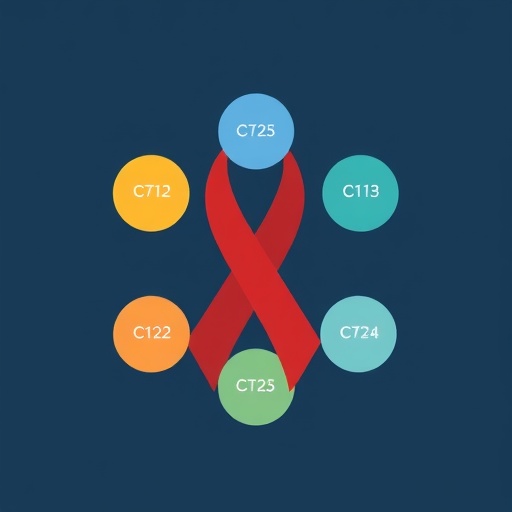The global landscape of healthcare is ever-evolving, with particular emphasis on the critical areas of infectious diseases and societal attitudes towards healthcare provision. Among these, the human immunodeficiency virus (HIV) continues to pose significant challenges, especially in vulnerable regions. The recent research conducted by a team of scholars in Georgia sheds light on the complexities surrounding primary healthcare providers’ attitudes towards HIV services. Understanding these attitudes is pivotal for effective public health interventions and policy formulations.
Primary healthcare serves as the first line of defense for individuals seeking health services. The recent study conducted by Maglaperidze, Zurashvili, DeHovitz, and their colleagues emphasizes the necessity of supportive attitudes among healthcare providers to improve access to HIV services. The backdrop of this research is particularly critical given that Georgia has seen fluctuating rates of HIV infection, necessitating a reassessment of service delivery strategies. Providers’ perspectives play a crucial role in determining the success of HIV care delivery.
Attitudes of healthcare providers can significantly influence the quality of care that patients receive. This study methodically explores various factors that contribute to these attitudes, ranging from personal beliefs to systemic barriers within the healthcare framework. The researchers employed an extensive survey approach, gathering responses from healthcare professionals across diverse settings, which allows for a comprehensive understanding of the prevailing sentiments towards HIV services.
An intriguing finding from this research highlights the correlation between educational background and attitudes towards HIV service provision. The data suggest that healthcare providers who have received specific training related to HIV are more likely to demonstrate positive attitudes toward patients living with the virus. This points to the imperative need for enhanced training programs that can foster empathetic and informed approaches to care.
The role of cultural beliefs and stigma is another significant aspect unveiled in the study. In many societies, including Georgia, there exists a palpable stigma surrounding HIV, which can deter healthcare providers from delivering adequate services. The study found that providers who expressed a strong personal or cultural stigma towards the disease were less likely to engage positively with patients. Thus, addressing these societal challenges is equally vital in changing the landscape of HIV care.
Furthermore, the research underscores the importance of institutional support. Providers who work in environments that prioritize HIV care reportedly exhibited more favorable attitudes compared to those in less supportive settings. This finding implies that healthcare facilities must cultivate an inclusive and supportive atmosphere for their staff, potentially leading to better health outcomes for patients.
Interestingly, the study also delves into the relationship between provider workload and attitudes towards HIV services. Delivering care under constrained resources and high patient volumes often leads to burnout, which can adversely affect providers’ engagement with HIV services. Recognizing the need for adequate staffing and resource allocation is essential to alleviate these pressures and improve overall service provision.
Moreover, the role of policy in shaping healthcare attitudes cannot be overstated. The researchers advocate for policies that are not only focused on treatment but also geared towards education and destigmatization of HIV. By integrating these elements, policymakers can effectively transform the healthcare landscape, leading to enhanced provider attitudes and, consequently, improved patient care.
The findings of this research are not only pertinent to Georgia but can serve as a blueprint for similar contexts globally. Addressing the multifaceted nature of healthcare providers’ attitudes is crucial in combating the HIV epidemic. The insights drawn from this study may inform future training programs, legislative initiatives, and advocacy efforts aimed at overcoming barriers in HIV care.
Moreover, engaging healthcare providers in dialogue about their experiences with HIV patients can foster a greater understanding and evoke empathy in care delivery. Facilitating platforms for open discussion among providers may alleviate some of the stigma and misconceptions surrounding HIV, thereby nurturing more compassionate care.
Collaboration among various stakeholders, including government bodies, healthcare institutions, and civil society organizations, is paramount in creating a cohesive strategy for HIV care. Ensuring that healthcare providers feel supported and valued is as essential as the medical training that they receive, highlighting a holistic approach to improving healthcare delivery.
Ultimately, this research is a call to action for all constituents involved in healthcare provision. Acknowledging and addressing the determinants of attitudes among healthcare professionals can bridge the gap between HIV services and those in need. As the world grapples with the ongoing challenges of HIV, fostering a positive culture around service provision is not merely an improvement necessity but a vital step towards achieving better public health outcomes.
This comprehensive examination of the attitudes towards HIV service provision stands as a significant addition to public health literature. It is a reminder that the effectiveness of healthcare extends beyond clinical practices; it lies in the heart of the healthcare workforce that delivers those services. As stakeholders reflect on these findings, the imperative will be to transform attitudes into action, ensuring that all patients receive the care they deserve.
In conclusion, the research by Maglaperidze and colleagues provides profound insights into the attitudes of primary healthcare providers towards HIV services in Georgia. It underscores the necessity of continuous training, supportive environments, and destigmatization efforts to enhance service provision and improve health outcomes for those living with HIV. As the fight against HIV continues, understanding and addressing the attitudes of healthcare providers will be crucial in shaping a more informed and compassionate healthcare system.
Subject of Research: Attitudes of primary healthcare providers towards HIV services provision in Georgia
Article Title: Exploring factors associated with primary healthcare providers’ attitudes towards HIV services provision in Georgia
Article References:
Maglaperidze, T., Zurashvili, T., DeHovitz, J. et al. Exploring factors associated with primary healthcare providers’ attitudes towards HIV services provision in Georgia.
BMC Health Serv Res 25, 1465 (2025). https://doi.org/10.1186/s12913-025-13639-z
Image Credits: AI Generated
DOI: https://doi.org/10.1186/s12913-025-13639-z
Keywords: HIV, healthcare providers, attitudes, stigma, training, Georgia, public health.




